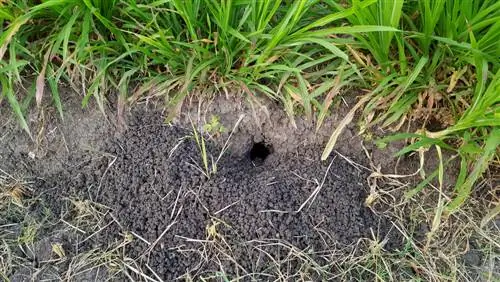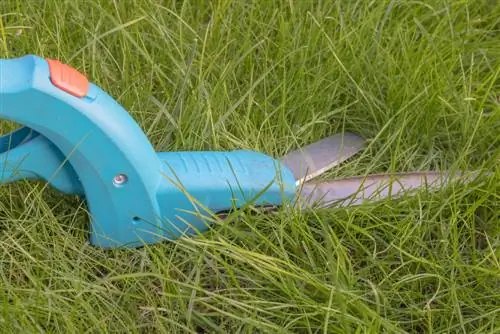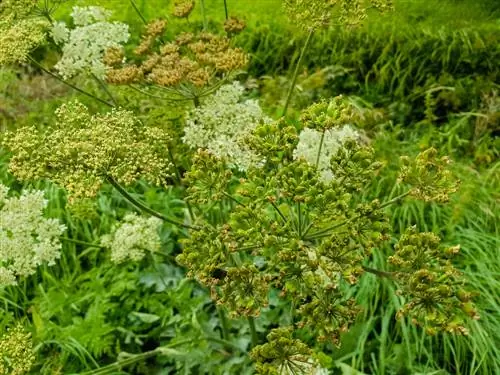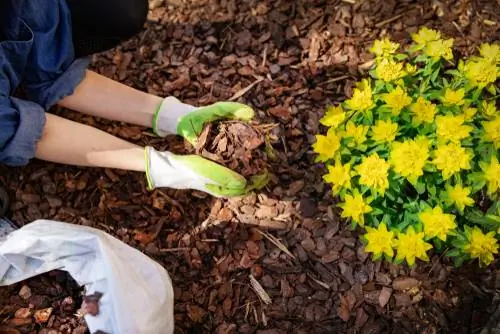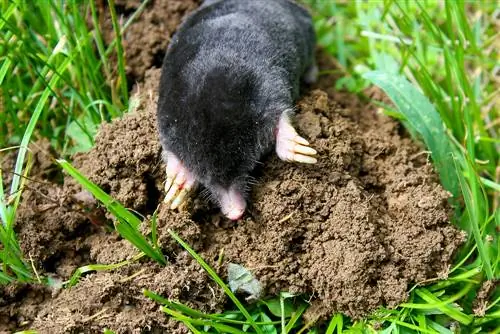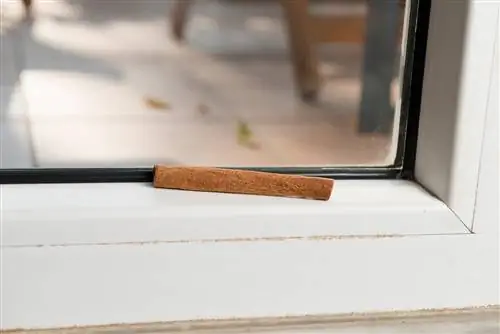- Author admin leonars@hobbygardeners.com.
- Public 2023-12-16 16:46.
- Last modified 2025-01-23 11:22.
Voles have a very sensitive nose, which we can use to drive them away. Voles can be driven away with unpleasant smells, for example butyric acid. Learn how to use butyric acid against voles below.
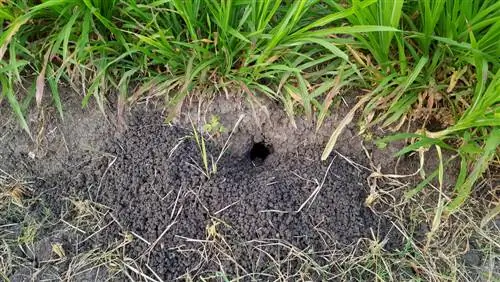
How do you get rid of voles with butyric acid?
Butyric acid repels voles because its strong smell makes them unpleasant. Wear protective clothing, place a rag containing butyric acid or buttermilk in all but one of the vole's escape holes, and repeat the process several times every two weeks.
The problem with butyric acid
Butyric acid is a chemical substance that is odorless in its original form. When the chemical comes into contact with air and moisture, it produces a strong odor reminiscent of rancid butter - hence the name. Because of the stench, butyric acid is a very effective remedy against voles, but the acid is not completely safe for both humans and voles. Butyric acid is corrosive to the respiratory tract and irritates the skin. What only causes mild irritation in humans if handled improperly can cause severe burns to the eyes, respiratory tract or skin of voles.
Tip
A good alternative to butyric acid is buttermilk, which also develops a strong smell. To achieve a good effect, you should not skimp on buttermilk.
Repel voles with butyric acid
Repelling a vole with butyric acid or buttermilk is very easy:
- First, you should identify all of the vole's holes if possible and select one hole as an "escape hole". This hole should be as close as possible to the property line and not be touched.
- When using butyric acid, you should wear long clothing, gloves and safety glasses.
- Dig up the entrances a little and put a few drops of butyric acid on a cloth. Press the rag into the vole entrance. If using buttermilk, saturate the rag with it.
- Repeat the process for all other holes - except the escape hole.
- To prevent the vole from coming back, you can repeat the process two or three times at an interval of two weeks.
Alternatives to butyric acid
Voles can also be driven away with other strongly scented products, e.g. nettle manure, elderberry tea, garlic, essential oils or smelly fish heads.


